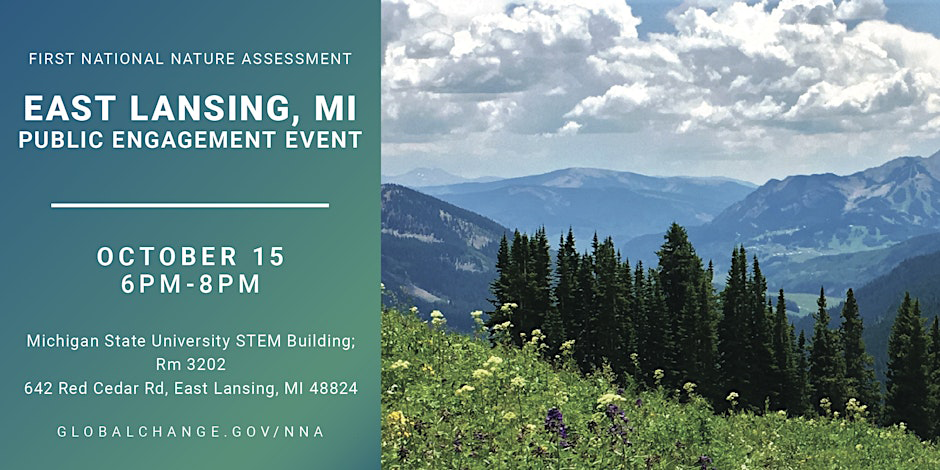National Nature Assessment Road Show: East Lansing
The challenges of climate change and nature loss are interconnected. Yet, the significance of nature in recent patterns of intensifying floods, heat stress, and wildfire is often overlooked. More frequent and extreme floods are the result of climate change and the extensive loss of wetlands that once acted as buffers, reducing some flood impacts. More intense heat waves stem from climate change and the loss of forests’ cooling canopies in cities and around farms. These interacting aspects of global change need to be understood and confronted together.
To better understand the full picture of what is happening with nature, U.S. Global Change Research Program (USGCRP) is undertaking a National Nature Assessment (NNA), which will take stock of U.S. lands, waters, wildlife and the benefits they provide to our economy, health, climate, environmental justice, and national security. The Assessment will also look ahead at how nature might change in the future, and what those changes may mean for our economy and our lives.
The first NNA is in the early stages of development and is anticipated to be released in 2026. As with other USGCRP assessments, the NNA will draw on expertise from the Federal Government, Indigenous communities, academia, non-profit organizations, and the private sector. The Assessment team will hold an array of public engagement opportunities to ensure the report answers questions that are important to every American’s life and is informed by the best available evidence.

These free, public events will inform the content of the Assessment chapters and will including information sharing, Q&A sessions, and collaborative round table discussions. Come share your thoughts on the NNA and the topics that are most important to you.
For a full list of fall 2024 public engagement events or to learn more about the National Nature Assessment, please visit the National Nature Assessment webpage.
Michigan State University is committed to providing equal opportunity for participation in all programs, services, and activities. Accommodation for persons with disabilities may be requested by contacting (517) 355-0306 or bakijata@msu.edu.
